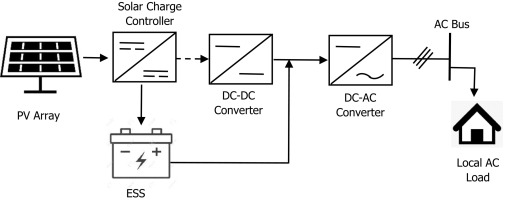
This article will focus on the many benefits of solar energy for your home. Some of the benefits include reduced greenhouse gas emissions, a smaller carbon footprint and reduced water pollution. But more importantly, solar panels can also reduce or even eliminate utility bills altogether. These savings add up and can make a significant difference over time. This article will also show you how to use solar energy for your home.
Reduces greenhouse gas emissions
Residential solar power is a great way of saving money and reducing greenhouse gas emissions. There are incentives offered by many states and federal government for solar power installation. This renewable energy source is a smart long-term decision. You can offset carbon dioxide emissions if you don't have enough resources to install solar panel systems yourself. "Green tags" are renewable energy that generate power for the grid. There are many programs for this purpose, and they can be found online.
Solar power can be stored to reduce greenhouse gas emissions and reduce household dependence on electric companies. It reduces the household's carbon footprint which is a measure to total greenhouse gas emissions. The household's total carbon footprint can be defined as the household's fuel consumption, lifestyle, and purchasing habits. You can drastically reduce your carbon footprint by using solar energy.
Reduce water pollution
Solar energy is an environmentally friendly energy source that can reduce dependence on petrochemicals. It can also be used as an alternative to fossil fuels or nuclear energy. According to United Nations Environmental Program, solar power plants produce electricity that is only a fraction of what fossil fuel plants consume.

The switch to renewable energy sources could lead to significant reductions in carbon emissions and water consumption. According to the study, switching to renewable energy sources in water-stressed countries would reduce carbon emissions by about 20 percent and water consumption by seven percent, respectively. A switch to solar energy could also lead to significant water and carbon savings for chemical companies.
Carbon footprint reduced
A growing share of our energy comes from solar energy. It plays an important role in fighting climate change. Photovoltaic panels or solar radiation concentrating mirrors convert sunlight into electricity. It is then stored in batteries or thermal storage.
Solar energy has numerous benefits. You can also reduce your household's carbon foot print. The household's total greenhouse gas emissions is its carbon footprint. The household's carbon footprint is determined by how much fuel it uses, how far it travels and what type of electricity it uses. Your household's carbon footprint can be significantly reduced by switching to renewable energy. You can also reduce your household's carbon footprint by buying organic, local food, gardening, and hanging your clothes up to dry rather than drying them.
Reduced costs
Soft costs are one of the greatest barriers to solar implementation. The industry must find ways that they can be reduced. Soft costs may include permitting and labor costs, as well as overheads in the supply chain. Aurora has launched a number of initiatives to reduce these soft costs. These initiatives can help increase solar installation and production, as well as reduce the overall cost of solar energy.
Aurora Solar is a great example of a company that has been successful. The company recently received two Sunshot grants. It has developed a method of evaluating potential customers to determine their solar suitability. This will bring down the cost per Watt by approximately 20%.

Tax credit
For those who use solar-powered equipment, the federal government offers a tax credit. The credit is determined by the total cost to install solar-powered equipment. The credit can cover as much as 30% of the total cost. But, the tax credit available for solar energy isn't guaranteed to be there for a long period. This credit can only be claimed if you purchase a brand new system and have not previously installed it. It also does not apply to used systems.
The federal government has long encouraged the use of solar energy. The government offers homeowners who make the switch to solar energy a tax credit. This credit was introduced in 2005. This tax credit (also known as the federal tax credit for solar) allows taxpayers the ability to deduct up 30% of the costs of installing a new solar system. This credit will expire in 2035, unless Congress extends it.